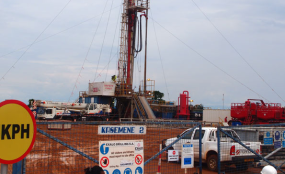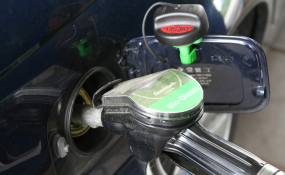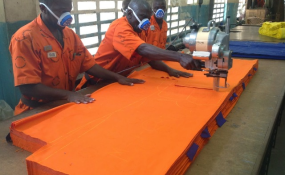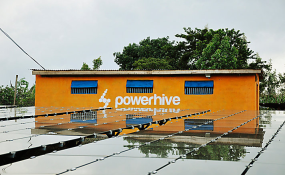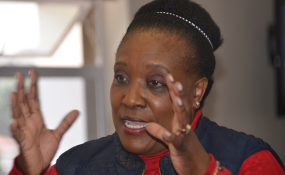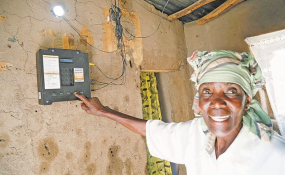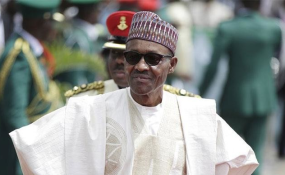ANALYSISBy Bitange Ndemo
My proposal last week to brand Kenyan athletics yielded many responses. Before proceeding to make another proposal for this week, I want to share just two of the comments elicited by last week’s column.
The first one is from Gerald Lwande. Writing from Eldoret, he had this to say:
“Good afternoon Prof. Ndemo. I am impressed with your article on today’s (26th Dec, 2016) with emphasis on the concept of an Athletics Hall of fame in Eldoret. I would like to bring to your attention Precise Genomics R&D Laboratories that has partnered with Strathmore University and University of Brighton – UK to set up a centre of excellence in Sports Medicine and Research in Eldoret town (Nandi road opposite Nandi close). The facility currently hosts high [calibre] endurance (Marathon) athletes such as Wilson Kipsang and Geoffrey Kamworor for training and rehabilitation. As a facility, we had not considered setting up a hall of fame, but – why not? Next time you visit Eldoret, please pay us a courtesy call and we could partner with one of your venture capitalists friends to set up this new idea of a hall of fame.”
I must confess that I did not know that a facility like this one exists in Kenya, but it strengthens my position that we don’t always have to look to government to start projects. There is a major role for the private sTwitter: @bantigitoector and research institutions to take the leadership through collaborations in exploiting opportunities that exist in the country. If we fail, someone else will take care and leave us complaining.
My colleague at the University of Nairobi and fellow columnist Dr X.N. Iraki posed these questions: “Could we possibly open our eyes in the coming year to deal with our own poor judgement, greed and self-centeredness, which have impoverished the people of Africa? Are Africans poorer in judgement, greedier, more self-[centred] than other races?”
POVERTY OF DECISION-MAKING
Related Content
KWAME: In praising Matiang’i, here’s what we are not saying about Kenya’s high school students
FRANCESCHI: After Matiang’i’s incredible feat, focus now should be on three key issues
THANGWA: Suggestions for doctors, drivers, job-seekers and voters in 2017
BANKELELE: Do you plan to win elections in 2017? Here’s some early advice
I don’t know the answers to these questions but in many forums people have asked similar questions. And as always we fear dealing with such questions, often choosing to move with the crowd even as we witness the suffering of people due to poor judgement by our leaders in virtually every sphere.
However, let us not just blame politicians. For example, our universities, public and private, are failing across the country, yet they are managed by the best brains the country can offer. A recent report by the Commission for University Education (CUE) revealed glaring maladministration at several institutions but the matter was politicised and tribalism unleashed to protect the status quo.
We need much more than rhetoric to deal with the rampant poverty of decision-making.
Let me reveal this week’s proposition. It is an idea I came across while visiting Cape Town with some friends.
Although I am a teetotaller, I escorted my friends to a wine-tasting outing at one of the many Cape Town vineyards. Later we moved on to a nearby a brandy-tasking estate.
I took lots of notes. I began to reflect on why in Kenya we don’t do the same with tea farms in Limuru or Kericho; coffee farms in Kiambu or Nyeri; and even sugarcane in Awendo or Mumias.
THE SAME OLD WAY
More than 50 years since independence, we have not challenged or disrupted any processing and distribution mechanisms that were left behind by the colonists.
Over time, returns from virtually all cash crops in the country have fallen, leaving the farmers poor and frustrated. Too many agencies were created in the middle, further squeezing the farmers into poverty. The Coffee Board, the Tea Board, the Cotton Lint and Marketing Board as well as the Sugar Board failed in their mandate to brand and market the Kenyan produce.
Some of these boards were infiltrated by cartels that virtually killed the industries. We also sacrificed these agencies on the altar of ethnic balancing. As a result, they are all in a mess.
Take the coffee industry, for example. Recent media reports revealed how a whole sector was brought to its knees by price-fixing cartels. The tea industry is no better; it is beginning to falter and incomes are declining.
The sugar industry was politically introduced by Kanu in Nyanza and western Kenya to give farmers some form of cash crop like those in tea and coffee-growing areas. It didn’t matter that feasibility studies showed that it was not feasible in the absence of large plantations. Even a casual observer will tell anyone that Kenya will never be competitive in sugar for as long as it is dependent on small-scale farmers.
Yet Kisii County, with no sugar plantations, is in the process of building a new sugar factory even with the fact that several factories have collapsed in the recent past. Just a few more cases where we have made or are making poor judgements.
BLOCKCHAIN TECHNOLOGY
Although many coffee farms have gone to real estate, new technologies can help us revive them, rejuvenate tea farming and make sugar farming worthwhile. The emergent Blockchain technology is enabling decentralised production while taking advantage of centralised or crowdsourced development.
This new concept is known as distributed production or manufacturing and leverages local manufacturing in a decentralised format by enterprises, creating geographically dispersed manufacturing entities brought together by information and communication technologies. It mimics the cottage industrial model but the product remains uniquely the same.
For example, a new, unique blend of tea can be developed through crowdsourcing. This product can be produced in several geographically disbursed locations but giving basically the same taste.
Some coffee blends are only manufactured elsewhere from the raw material that we export. We then import the finished product. In distributed production, the product will be produced locally using the same formulation used elsewhere. The cost will be minimised while consumption will be enhanced, thus benefiting the farmer.
While this modern method of production may be acceptable in the tea sector, it will be very difficult to disrupt the existing order in coffee and sugar. Ethiopia, however, fought the big boys to gain global recognition and benefits to her coffee. Kenya has yet to understand the global cartels that control the commodity.
ENTREPRENEURIAL OPPORTUNITIES
It is the more reason we need to disrupt the existing order, cut the many middlemen and let the farmer benefit. There is a need for policy change to protect whatever is remaining of coffee.
The endangered Kiambu farms should be turned into tourist locations for coffee tasting just like wine tasting in Cape Town.
The thousands of people who turn up each day to taste wine end up buying and promoting the brand locally and internationally as well as creating employment at every stage.
The sugar sector will be more controversial since it will seek to destabilise local multinationals. It is my contention that sugar production in Kenya would in the long run impoverish the farmers.
What needs to be done is to focus more on manufacturing brandy just like the South Africans do with vineyards. Some of the best brandies exported from South Africa are from wineries.
The more I listened to the descriptions of the brandy, the more entrepreneurial opportunities I saw for young Kenyans. At some point they said the brandy had a woody smell and that made it special.
This indeed reminded me of the clay pots that used to store water, and its beautiful earthy taste. They are likely to produce some unique earthy brandy. This will revive the art of pot making in Kenya with a powerful purpose.
It is time we dealt with the propaganda by multinational companies that local production of liquor is illicit. What is lacking is regulation of liquor production. Americans dealt with bootlegging through production regulation.
LIMITS OF CRIMINALISING LIQUOR
We must face the reality that no amount of criminalising local liquor production will stop its production. The sooner we perfected production, or leveraged Blockchain technology to produce globally acceptable quality liquor, the better.
This brave decision will create multiple jobs as well as improve the safety of liquor in the country. It does not need a genius to build a distillery knowing that the concept has been the same.
I write this knowing that there are moral consequences to such propositions. Yet again it is the act of facing reality that breeds prudent decision-making. We can reasonably talk about responsible drinking. It is utterly irresponsible and poor judgement to think that drinking can be stopped by destroying drinking dens or manufacturing facilities.
John Quincy Adams, an American statesman who served as the sixth president of the United States from 1825 to 1829, said, “If your actions inspire others to dream more, learn more, do more and become more, you are a leader.”
There is much to learn from other successful economies and we can emulate them to jumpstart our development.
South Africa offers us the opportunity to increase demand for our coffee, tea and sugar. It also offers us ideas for spurring local production as a strategy for creating more employment and sustainable development.
The writer is an associate professor at University of Nairobi’s Business School.



